Artificial intelligence (AI)
Artificial intelligence (AI) refers to a broad range of processes and technologies enabling computers to complement or replace tasks otherwise performed by humans. Such systems have the ability to exacerbate surveillance and intrusion into our personal lives, reflect and reinforce some of the deepest societal inequalities, fundamentally alter the delivery of public and essential services, undermine vital data protection legislation, and disrupt the democratic process itself. In the face of this, EDRi strives to uphold our fundamental rights, democracy, equality and justice in all legislation, policy and practice related to artificial intelligence.
Filter resources
-
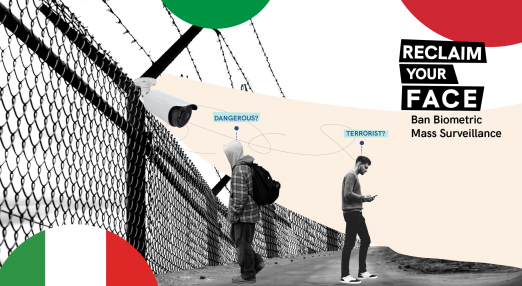
Chilling use of face recognition at Italian borders shows why we must ban biometric mass surveillance
As part of Reclaim Your Face's investigation in rights-violating deployments of biometric mass surveillance, EDRi member Hermes Center explains how the Italian Police are deploying dehumanising biometric systems against people at Italy’s border.
Read more
-
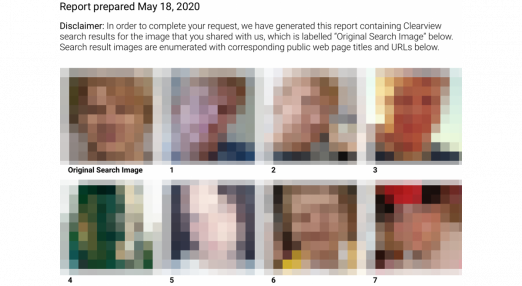
How to Reclaim Your Face From Clearview AI
The Hamburg Data Protection Authority deemed Clearview AI’s biometric photo database illegal in the EU as a result of a complaint Matthias Marx, a member of the Chaos Computer Club (an EDRi member) filed.
Read more
-
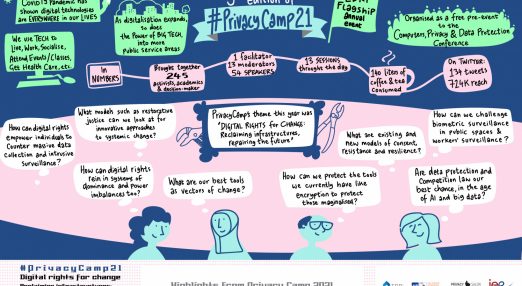
#PrivacyCamp21: Event Summary
The theme of the 9th edition of Privacy Camp was "Digital rights for change: Reclaiming infrastructures, repairing the future" and included thirteen sessions on a variety of topics. The event was attended by 250 people. If you missed the event or want a reminder of what happened in the session, find the session summaries below.
Read more
-

2021: Important consultations for your Digital Rights!
Public consultations are an opportunity to influence future legislation at an early stage, in the European Union and beyond. They are your opportunity to help shaping a brighter future for digital rights, such as your right to a private life, data protection, or your freedom of opinion and expression.
Read more
-
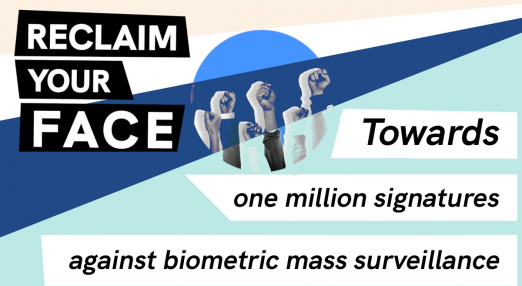
ReclaimYourFace activates the public and civil society to ban biometric mass surveillance
The EDRi network and partners launched the first phase of the Reclaim Your Face campaign, which focuses on raising awareness and investigating and challenging abusive uses of facial recognition and other biometric tech at a local and national level, in November 2020. The coalition has achieved several wins in the two months since. However much remains to be done in the movement to reclaim our faces and ban biometric mass surveillance in Europe!
Read more
-
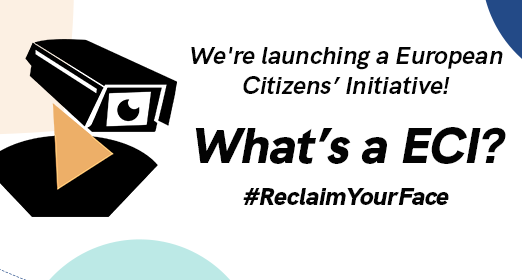
Looking for a New Years’ Resolution? #ReclaimYourFace with our citizens’ initiative!
Since its launch just 2 months ago, the Reclaim Your Face campaign to ban biometric mass surveillance has gone from strength to strength. Already 23 organisations have joined the coalition, and almost 13,000 people have joined the movement – and this is only the beginning.
Read more
-
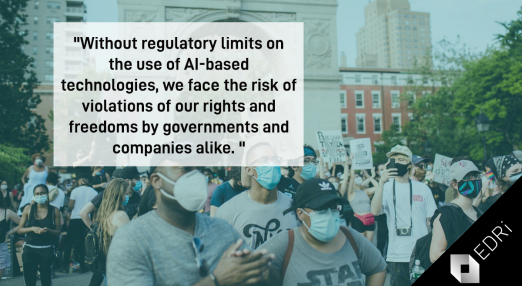
Civil society calls for AI red lines in the European Union’s Artificial Intelligence proposal
European Digital Rights together with 61 civil society organisations have sent an open letter to the European Commission demanding red lines for the applications of AI that threaten fundamental rights.
Read more
-

Press release: EDRi network launches public initiative against biometric mass surveillance
On 7 January, the European Commission registered a new European Citizens’ Initiative (ECI), the ‘Civil society initiative for a ban on biometric mass surveillance practices’.
Read more
-

The slippery slope of COVID health passports
There is increasing talk of measures that allow or restrict passengers at the departure gate based on health data. Can you show proof of vaccination? Then you may pass. Do you have a recent, negative test result? Then you may enter. Are you unable or unwilling to show these? Then you are denied access. There’s an understandable rationale that underpins these scenarios: we want to create a safe environment. Yet it is also cause for great concern.
Read more
-
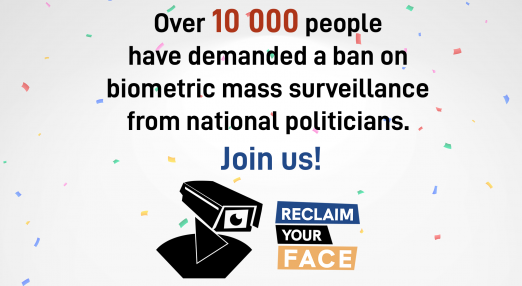
Reclaiming faces and public spaces!
The Reclaim Your Face movement is growing, and our demands for transparency, limiting the accepted uses and respect for humans are becoming more and more common across Europe. New organisations are joining the coalition each week, and people across Europe continue to sign the petition to add their voices to our demands. Now, thanks to campaigning by Homo Digitalis in Greece and Bits of Freedom in the Netherlands, we’re getting closer to real political and legislative changes that will protect our faces and our public spaces from biometric mass surveillance.
Read more
-

Looking back at digital rights in the era of a surveillance pandemic
2020 started as a year to build momentum to tackle various digital rights issues, including mass surveillance and freedom of expression online. Needless to say, the global pandemic disrupted not only these efforts but also our health, personal relations, basic survival needs and ways to organise around human rights. After 9 months of living and working in a pandemic, we look back at what we achieved and the ways forward from here.
Read more
-
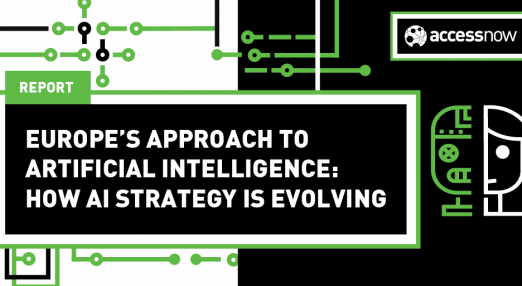
For a truly “Trustworthy AI,” EU must protect rights and deliver benefits
EDRi member Access Now published a report exploring the actions EU governments are taking to promote what the EU calls Trustworthy AI, what this approach means for human rights, and how European AI strategy is changing, both for EU institutions and national governments.
Read more
